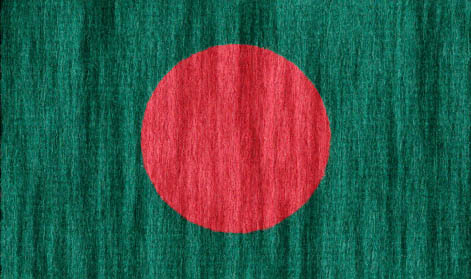Bangladeshi apparel manufacturers have strongly opposed any Japanese investment in producing basic garment products, claiming domestic entrepreneurs are capable of doing it.
“Japanese investors showed interest in producing basic readymade garment products like pants and shirts but we discourage such investment as we are capable of manufacturing those,” Bangladesh Garment Manufacturers and Exporters Association (BGMEA) vice-president Reaz bin Mahmood said.
The Japanese investment in readymade garments and textiles sector was discussed during the first Bangladesh-Japan Public-Private Economic Dialogue held at the Prime Minister’s Office. A delegation of Japanese investors attended the meeting
The association asked the Japanese businessmen to invest in composite textile industry or value-added products such as suits, tents and school bags, where local investment had been negligible, Reaz said.
“A foreign investor has set up a plant to produce apron, gloves and other products which are used in hospitals and we encourage such investment,” he added.
Federation of Bangladesh Chambers of Commerce and Industry (FBCCI) president Kazi Akramuddin, who represented the business community in the Bangladesh-Japan dialogue, said the Japanese investors wanted to come in a big way.
“They wanted to know what incentives they would get if they invested in Bangladesh.”
Bangladesh wanted them to invest in sectors such as power, information technology and other value-added industries, he said.
“We showed little interest about having investment in the readymade garment sector,” he added.
BGMEA president Atiqul Islam, who also attended the meeting, told the visiting delegation that Japan investors would be encouraged to invest in high-end products where Bangladesh entrepreneurs had little investment, Akram said.
“The Japanese delegation assured Bangladesh that they would increase garment import from Bangladesh,” he said.
The apex trade body chief said Japan was helping Bangladesh to construct Matarbari power plant and Dhaka asked Tokyo to construct LNG terminal in the country.
An official, who attended the meeting, said the Japanese delegation raised the issue of getting utilisation declaration (UD) certificates for the 100% foreign-owned apparel manufacturing units which operate outside export processing zones (EPZs).
“They want us to develop a procedure so that foreign-owned factories operate outside EPZs can get UD certificate,” he said.
The Bangladesh side assured them to look into the issue after consulting all stakeholders including the BGMEA, the UD-issuing authority.
Meanwhile, a press release issued by the foreign ministry has said the governments and private sector of the two countries have noted a number of ways and areas to tap mutually-beneficial opportunities for private investments in Bangladesh.
“They recognised areas like textiles, leather, pharmaceuticals, IT and ITES, tourism and hospitality, health, etc as possible sectors where both countries can enter into cooperative undertakings in the future,” the press release said.
The Japanese side stressed the importance of developing the special economic zones and adjoining infrastructures in Bangladesh to attract greater quantum of investments from Japan.
It urged Bangladesh to address some of operational issues flagged by the Japanese investors, including simplification of various procedures related to certification, licensing approval process, issuance of visa, and work permit.
They also discussed about various incentives to improve overall investment climate and to enhance trade relations between the two countries.
The meeting decided to hold the second Joint Bangladesh-Japan Public- Private Economic Dialogue in Japan next year.
The Japanese delegation, consisting of 38 members, was led by Norihiko Ishiguro, and the Bangladeshi delegation, comprising 32 members, was led by Abul Kalam Azad, senior secretary of the Prime Minister’s Office.
The visit of the Japanese entrepreneurs comes ahead of Prime Minister Shinzo Abe’s visit to Dhaka early next month.

